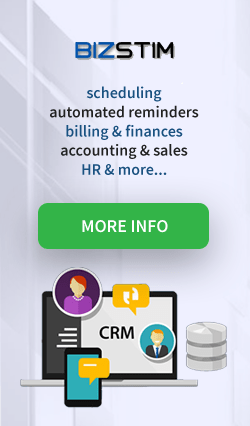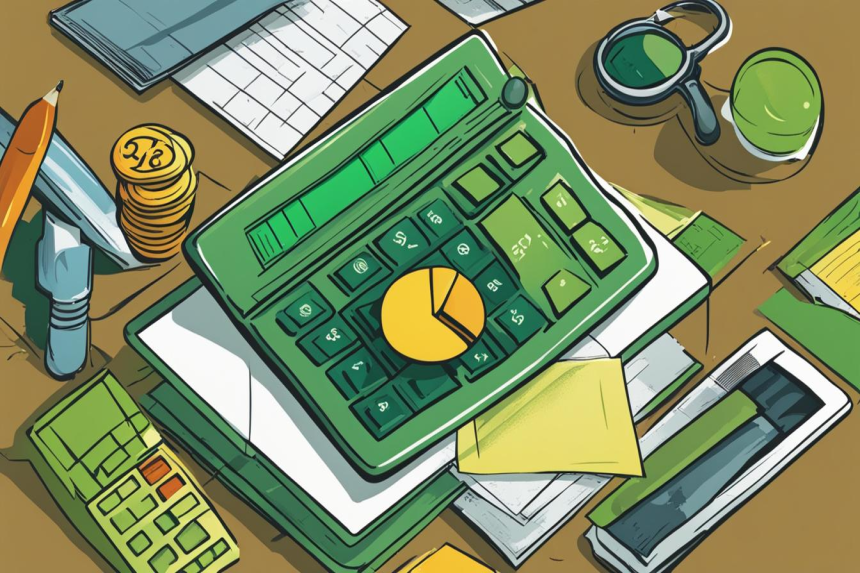
Embarking on the job search journey requires not only a polished resume but also an acute awareness of the language we use in interviews. Experts caution that candidates must steer clear of certain phrases not to use in a job interview, expressions that can turn the tide against you in the quest for career advancement.
As you ready yourself to face potential employers, remember that it's not only about the answers you provide but also about avoiding job interview phrases to avoid that may cast you in an undesirable light.
Whether you're new to the workforce or a seasoned professional seeking new opportunities, being mindful of inappropriate job interview phrases will serve as a guiding principle to ensure you convey your competencies and character effectively.
Introduction: Setting the Stage for Interview Success
The words you choose can either pave a path toward your next role or inadvertently create barriers. By embracing job interview language tips and refining your communication strategy, you can eliminate common missteps, ensuring your proficiency shines brightly through your dialogue.
Much like an actor rehearsing their lines, candidates must prepare to deliver a performance that is both engaging and spot-on. This preparation includes understanding the nuances of successful job interview tactics. These tactics not only display your qualifications but also demonstrate your cultural fit and personal brand.
Structured approach to interview eloquence:
- Reflect on your phrasing: Consider the implications of your words and how they could be interpreted by the interviewer.
- Practice active avoidance: Deliberately steer clear of expressions known to raise red flags among hiring managers.
- Embrace positivity: Strive to maintain an optimistic tone throughout your interview, even when discussing challenging situations.
Interviewing is a skill where careful language selection is indispensable. Brushing up on communication techniques and pinpointing those detrimental phrases to evade will significantly tip the scales in your favor.
In doing so, you set yourself up to leave a lasting, favorable impression, one that reflects your capabilities and positions you as an asset to any potential employer.
Understanding the Impact of Your Words

Next, let's explore the psychological dynamics at play during those initial minutes of conversation and provide insights on how to maneuver through the communication challenges that may arise.
The Psychology Behind First Impressions
In the fleeting moments of a first encounter, interviewers often form opinions that are tough to reverse. Factors like your attire and handshake matter, but it's the opening words and how you deliver them that can profoundly affect the interviewer's perception. Being conscious of job interview communication pitfalls can prevent unintended messages from clouding the real value you bring to the table.
Verbal Communication: More Than Just Words
It's not only what you say but how you say it. Tone, pacing, and clarity contribute to the message's effectiveness. Active listening and responding appropriately also play crucial roles in conveying confidence and respect.
By mastering the nuances of verbal exchanges, you have the opportunity to showcase not just your professional qualifications but also your emotional intelligence and relational skills.
Navigating the Subtleties of Professional Dialogue
The intricate dance of a job interview involves understanding both explicit and implied messages. To do this effectively, practice tailored storytelling that aligns with the company's values and the role's requirements.
Take care to avoid the language that triggers unconscious biases or indicates a lack of preparedness. When you approach professional dialogue as a skill to be honed, you take control of the narrative and your career trajectory.
From the moment you walk into a job interview, every aspect of your communication is being evaluated.
The importance of making a strong first impression in job interviews cannot be overstated, and the ability to navigate job interviews with articulate, thoughtful speech will set you apart from the competition.
Phrases Not to Use in a Job Interview

Stepping into a job interview can be likened to walking onto a stage where every word is a performance that shapes the narrative of your professional image. To circumvent the snare of taboo phrases in a job interview, it's vital to identify and sidestep expressions that are ineffective or could lead to misunderstandings.
This portion of our discourse delves into language considered off-limits in an interview setting and highlights why each should be meticulously avoided to prevent detracting from your professional portrayal.
Be wary of inadvertently stepping into language pitfalls. Below are specific phrases that researchers and career experts have identified as particularly detrimental within the interview context:
- "I don't have any weaknesses." Claiming perfection can be perceived as arrogance or a lack of self-awareness, rather than a mark of confidence.
- "It's on my resume." Refusal to elaborate suggests reluctance to engage and may be seen as dismissive or implying the interviewer hasn't done their homework.
- "I just..." Minimizers like this one can undermine the impact of your statements and sell your experiences short.
- "No problem." or "Yeah, sure." While meant to be casual and affirmative, these can come across as overly informal and flippant in a professional setting.
- "How much vacation time do I get?" Asking too early about benefits may signal that your priorities are misaligned with the company's needs.
- "I hated my last job." Negative commentary about past employers is a major red flag for potential future relationships.
- "My last company was so toxic." This may come across as unprofessional, negative, and potentially raise concerns about your ability to handle workplace challenges or maintain a positive attitude.
- "I don’t know." The phrase may give the impression that you lack confidence or haven't adequately prepared for the interview.
- "I hate..." Job interviews are professional settings, and expressing strong negative emotions can create a negative impression and potentially harm your chances of being considered for the position.
- "What does your company do?" This question may give the impression that you haven't done sufficient research or preparation before the interview.
- "I don’t have any questions!" This phrase may give the impression that you are not genuinely interested or engaged in the opportunity.
- "I didn’t have time to prepare." Admitting that you didn't have time to prepare for a job interview can give the impression that you are not organized or fully committed to the opportunity.
- "I’ll do anything!" While expressing enthusiasm and a willingness to take on various tasks can demonstrate your flexibility, using this phrase in a job interview may come across as too vague or desperate.
- "I know I don’t have much experience, but..." This can inadvertently undermine your own confidence and competence in a job interview.
- "I’d like to start my own business as soon as possible." It may give the impression that you are not fully committed to the position or that you have short-term goals that conflict with the long-term goals of the company.
- "Do you want to see my references?" Offering your references too early in the interview process may come across as presumptuous or pushy.
Understanding the why behind avoiding certain ineffective interview language is the key to refining your interview technique. Your aim should be to communicate in a manner that accentuates your strengths, adaptability, and cultural fit without falling into the snare of common interview language mistakes.
Conscious communication is the cornerstone of a successful job interview, and steering clear of these parlance pitfalls will help maintain the integrity of your professional image.
As you continue to perfect the art of the job interview, remember that effective communication not only relays information but also builds relationships and credibility.
It's not enough to be qualified; you must also present yourself as a committed and adaptable professional capable of contributing positively to the company culture.
Why Specific Phrases Can Harm Your Interview Prospects

When you're in the midst of a job interview, your linguistic choices are as much on display as your resume. Certain phrases can ring job interview red flags, suggesting to employers a possible misalignment between your professional identity and the role at hand.
Before diving into the details, it's crucial to address how the very essence of your spoken words carries weight, with the potential to either fortify or diminish your credibility and professionalism.
The Relationship Between Language and Credibility
Imagine your words as the threads weaving the fabric of your professional persona. Each term you select either strengthens or unravels your narrative of competence. Maintaining professionalism is reliant upon a candidate's ability to articulate experiences and qualifications in a manner that is not only accurate but also instills confidence. Missteps in language can project a lack of credibility, painting a portrait of a candidate whose promises may outshine their actual potential.
How Certain Expressions Can Undermine Professionalism
Diction matters. Phrases casually tossed into conversation can inadvertently signal nonchalance towards the job-seeking process. For example, using colloquial expressions can blur the lines of professionalism, making it difficult for the interviewer to visualize you in a role that demands decorum and gravitas. You'll want to avoid cliches in interviews that offer little substance and obstruct the view of your genuine skill set.
The Danger of Cliches and Vague Statements
Under the scrutiny of an interview, cliches are the nemesis of specificity. Vague statements and overused expressions do not just detract from the originality of your thought process; they also starve the conversation of the concrete details employers seek.
Interviewers are on the lookout for candidates who articulate clear, direct, and meaningful dialogue - discussing achievements and aspirations with precision that validates their readiness and aptness for the position.
Steering clear of these verbal pitfalls is more than a mere avoidance of blunders; it's a strategy for constructing a compelling, trustworthy, and professional image that appeals to potential employers. Elevate your language and you elevate your chances in the highly competitive realm of job interviews.
How to ace a job interview and get the job! by Professional Academy
Job Interview Language Tips: Building Positive Interactions

Strategies for Clear and Confident Communication
Articulation and assurance are the linchpins of interview dialogue. It begins with framing responses that reflect both self-assurance and respect for the interviewer's queries. This balance showcases an applicant's preparedness and adaptability.
Maintaining eye contact, modulating your voice for clarity, and pausing to digest questions before answering are all tactical components of a confident communicative demeanor. Professionals who incorporate these elements naturally express their qualifications and cultural fit with an organization.
Tailoring Your Vocabulary to Different Industries
Every industry carries its own jargon and expectations of linguistic proficiency. Industry-specific language, when used aptly, demonstrates familiarity with the field's nuances and an ability to seamlessly integrate into specialized environments.
Candidates should research and integrate relevant terminology into their responses, customizing their word choices to reflect the role in question. This linguistic agility not only highlights expertise but also signals a dedicated and intentional approach to career advancement within a specific domain.
The Role of Active Listening in Effective Interviews
While the spotlight may seem fixed on the respondent, active listening in interviews is a quiet yet pivotal player. It entails giving full attention to the interviewer, nodding in understanding, and responding to cues both verbal and non-verbal. It's about hearing between the lines to capture underlying expectations and tailor your narrative accordingly.
Through active engagement, job seekers build a collaborative dialogue, paving the way for interaction that's not only informative but also constructively responsive. Such interactions are the keystone to leaving an indelible mark on the minds of those who hold the keys to your next career opportunity.
Entering the final scene of an interview necessitates not just readiness, but a mastery of effective interview communication strategies. It's the aspirant's moment to build rapport through clear, confident exchanges, ensuring every utterance fortifies the bid for the position.
As the curtain raises on this final act, we crystallize the art of conversational finesse, essential for the positive interactions that underpin interview success.
Have you ever encountered challenging interview situations where language played a crucial role? Share your experiences and insights in the comments below!









